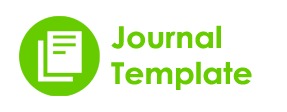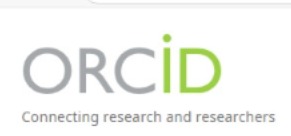Development of Performance Evaluation Model for Elementary Schools Implementing Inclusive Education
DOI:
https://doi.org/10.63889/pedagogy.v18i2.315Keywords:
evaluation model development, inclusive education, elementary schoolAbstract
The purpose of this research is to develop an Inclusive Education Performance Evaluation (IEPE) Model in Elementary Schools (ES). This research uses a Mixed Methods approach. The research method was modified from the Borg & Gall model and involves School Principals, Teachers, and Parents. Data were collected through Focus Group Discussion (FGD), interviews, observations, and documentation studies. The research findings show that (1) the IEPE model is one of the best evaluation models based on the assessment results of experts and practitioners of inclusive education implementation in elementary schools; (2) the performance evaluation model for elementary schools implementing inclusive education consists of seven components: leadership, strategic planning, focus on students-parents, needs analysis, focus on teachers-staff, inclusive classroom management, and results; and (3) the evaluation of the IEPE model in the implementation process at elementary schools is capable of revealing data that is: (a) comprehensive; (b) factual; (c) flexible; and (d) diversity-oriented service.
References
REFERENCES
[1] Direktorat Pembinaan Sekolah Luar Biasa. (2011). Pedoman umum penyelenggaraan pendidikan insklusif. Departement Pendidikan Nasional, 70, 1--36.
[2] Hasibuan, L., Isma, ad, & Badriyah UIN Sulthan Thaha Saifuddin Jambi, F. (2022). JOURNAL OF DISABILITY STUDIES AND RESEARCH
[3] Jamaluddin, J., Nur, M. J., P, S., Juliana, & Urva, M. (2022). Implementasi Pendidikan Inklusif Pada Mata Pelajaran Pendidikan Agama Islam. Jurnal Al-Qalam: Jurnal Kajian Islam & Pendidikan, 14(2), 1--12.
[4] Khairuddin. (2020). Pendidikan Inklusif Di Lembaga Pendidikan. Jurnal Tazkiya, Vol. 9(No. 1), 82--104.
[5] Khoeriah, N. D. (2013). Pengembangan Model Evaluasi Kinerja Sd Penyelenggara Pendidikan Inklusif. Jurnal Penelitian Dan Evaluasi Pendidikan, 17(1), 37--54.
[6] Maftuh, M. F. Z. (2017). Pendidikan Agama Islam dalm Setting Pendidikan Inklusi. Banjarbaru: Grafika Wangi Kalimantan, 1705045066, 1--111.
[7] Nur'aini, S. (2023). Implementasi Project Penguatan Profil Pelajar Pancasila (P5) Profil Pelajar Rahmatan Lil Alamin (P2RA) dalam Kurikulum Prototife di Sekolah / Madrasah. Jurnal Ilmiah Pedagogy, 2(1), 84--97.
[8] Nurani, A. S., Zauhar, S., & Saleh, C. (2015). Responsivitas Pemerintah Dalam Penyelenggaraan Pendidikan Inklusif Dalam Perspektif New Public Service. Wacana, Jurnal Sosial Dan Humaniora, 18(04), 213--220.
[9] Sasmita, N. A., Mustika, M. D., Psikologi, F., & Indonesia, U. (2019). Jurnal Diversita. 5(2), 105--114.
[10] Universitas Islam Negeri Sunan Kalijaga. Pusat Layanan Difabel, M. (2017). Inklusi. Inklusi, 4(2), 271--296.
[11] Zakiyah, N. H. M. A. Q. (2023). VICRATINA : Jurnal Pendidikan Islam Volume 8 Nomor 8 Tahun 2023 e-ISSN: 2087- 0678X. Jurnal Pendidikan Islam, 8(8).
Downloads
Published
How to Cite
Issue
Section
License
Copyright (c) 2025 Siti Nur'aini, Ahmad Teguh Purnawanto

This work is licensed under a Creative Commons Attribution-ShareAlike 4.0 International License.






